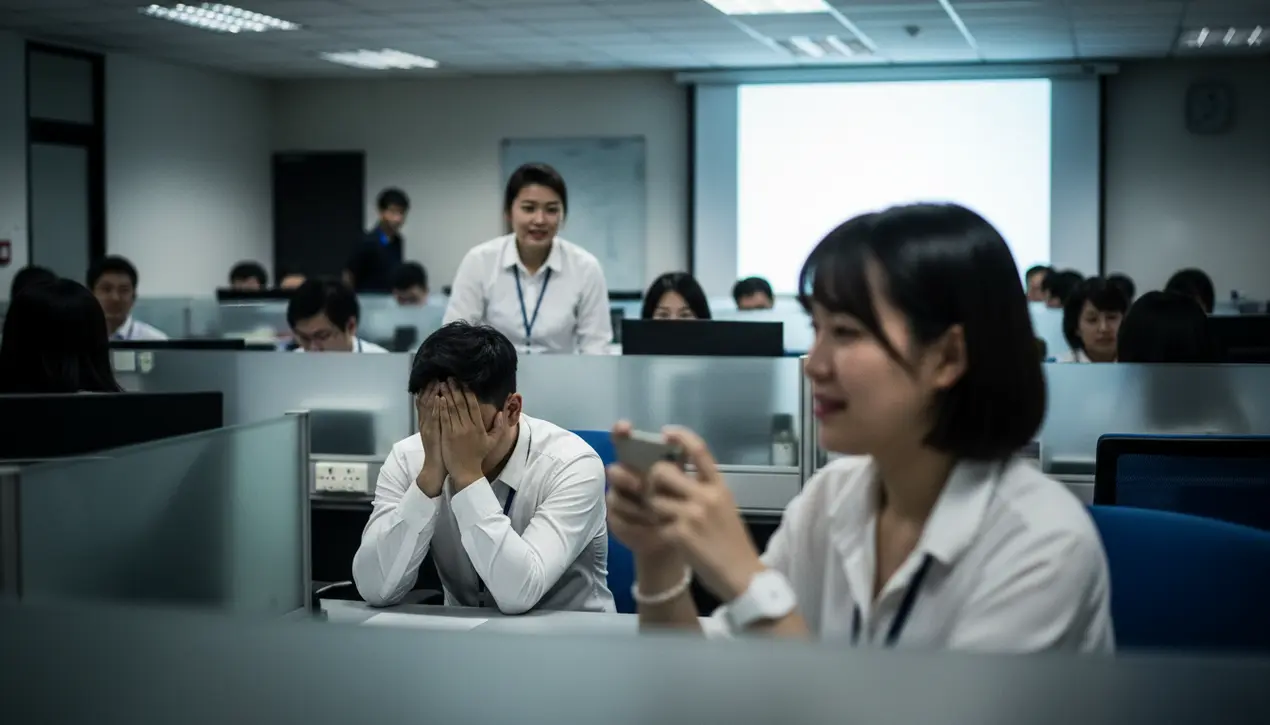
OthereducationEdTech Innovations
Fail watching: The rise of workplace schadenfreude.
LA
Laura Bennett
13 hours ago7 min read
In the ruthless theater of today's job market, where mass layoffs have left professionals desperately clinging to their roles, a peculiar and often unspoken coping mechanism has taken root: the quiet, guilty pleasure of watching a workplace rival stumble. This phenomenon, which many know by the German term *schadenfreude*—the derivation of pleasure from another's misfortune—has found a more specific, modern incarnation in what's being called 'fail watching.' It's a psychological strategy born from profound insecurity, a way to momentarily feel better about one's own precarious position by witnessing the missteps of others, particularly those smug colleagues or overachievers who seem to have it all. Research consistently shows that seeing others fail can provide a potent self-affirming boost, a finding that rings especially true for those with low self-esteem who feel threatened by the success of their peers.These reactions, while uncomfortable to admit, are a fundamental part of human nature, a dark reflection of our competitive instincts. Yet, as Peter Duris, CEO of Kickresume, insightfully notes to *Fast Company*, this behavior is less about individual malice and more a symptom of a deeper organizational sickness—a stark lack of trust within a team, where employees wait with bated breath for someone to mess up.You're far less likely to encounter this toxic pastime in a healthy workplace where everyone feels genuinely supported and valued. The data underscores this cultural decay; a recent 2025 Gallup survey revealed a troubling decline, with only 30% of U.S. employees now feeling that someone at work encourages their development, down from 36% in the early days of the pandemic.Duris further links the prevalence of fail watching to the immense pressure bearing down on Gen Z employees, a generation that has had to fight relentlessly just to get a foot in the door. In the current hiring slump, the statistics are brutal: an applicant has a mere 0.4% chance of landing a job, and global entry-level postings have plummeted by 29% since the start of 2024, creating a pressure cooker of competition. Researchers from Zurich University have found that such highly competitive environments are the perfect petri dish for the emergence and development of schadenfreude, validating what many feel in their bones.It's one thing to feel a fleeting sense of reassurance when you see someone else also finding things tough; it's a shared, unspoken understanding of a common struggle. But there's a profound ethical chasm between that momentary connection and actively praying for a colleague's downfall, or worse, engaging in public gloating or workplace bullying that can permanently poison a team's dynamic.The real test of character comes in how we choose to respond when we notice a coworker struggling. The most constructive, human reaction is to offer help if you can, or to simply be kind and supportive, creating a ripple effect of goodwill.And when another colleague tries to pull you into gossip about someone's recent failure, the most powerful move is to gracefully change the subject, or at the very least, save such conversations for outside the office walls. It’s in these small, daily choices—to build up rather than tear down, to extend empathy instead of judgment—that we can begin to dismantle the culture of fail watching and rebuild workplaces founded on genuine collaboration and mutual respect, because as the age-old adage wisely counsels, if you don't have anything nice to say, sometimes the most powerful action is to say nothing at all.
#workplace culture
#schadenfreude
#fail watching
#Gen Z
#employee morale
#coping mechanisms
#featured
Stay Informed. Act Smarter.
Get weekly highlights, major headlines, and expert insights — then put your knowledge to work in our live prediction markets.
Related News
Comments
Loading comments...
© 2025 Outpoll Service LTD. All rights reserved.